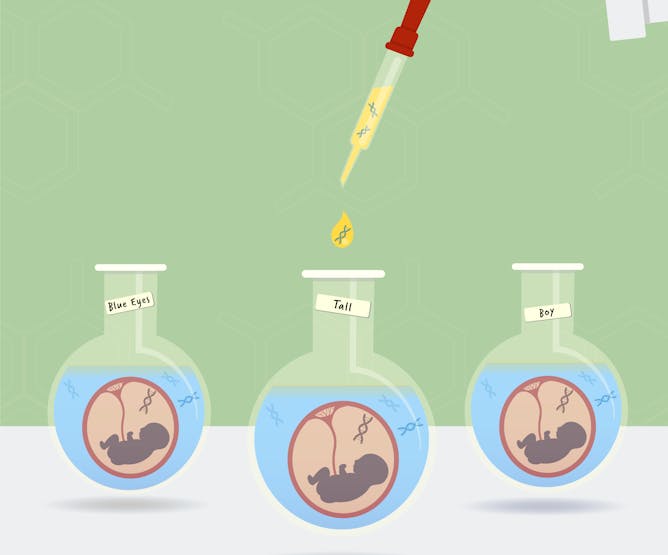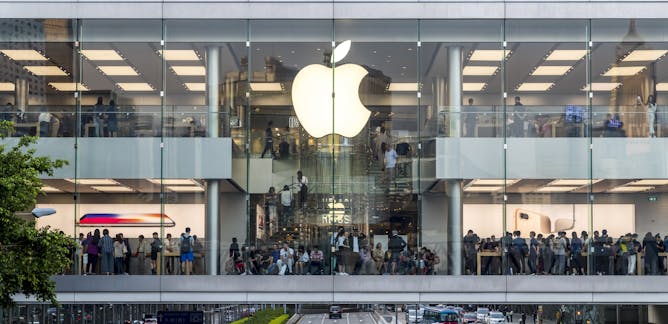|
A chorus of alarming headlines about the coming of designer babies has always followed every advance in reproductive technology, beginning with the introduction of IVF in 1978. That happened yet again with the recent announcement of the gene-edited Chinese twins. Epidemiologist Cecile Janssens explains why designer babies with complex traits, like intelligence, are almost impossible to create.
Oil prices are also making headlines. OPEC’s announcement that it will cut global daily oil production by 1.2 million barrels to boost prices may make it look like a unified powerhouse that dictates what crude oil costs. That’s not the case, argues energy historian Gregory Brew.
Seaweed is a diet staple all over the world, and a key source of the essential mineral iodine. However, researchers have now found that although the effects of climate change will see the plant thrive in future acidic oceans, its nutritional content will change substantially. Georgina Brennan, Dong Xu and Naihao Ye set out their research and what this means for the future health of billions of people.
|

Babies to order.
Andrew crotty/Shutterstock.com
A Cecile JW Janssens, Emory University
Forecasts of designer babies followed the announcement of the gene-edited twins, just as they have for any reproductive technology since 1978. This signals the public must learn more about genetics.
|

Saudi Minister of Energy, Industry and Mineral Resources Khalid Al-Falih.
AP Photo/Ronald Zak
Gregory Brew, Southern Methodist University
The oil-exporting organization may have mustered the political will to cut production, but its disunity remains intact.
|

Seaweed salad.
Kongsak/Shutterstock
Georgina Brennan, Bangor University; Dong Xu, Yellow Sea Fisheries Research Institute, Chinese Academy of Fishery Sciences; Naihao Ye, Yellow Sea Fisheries Research Institute, Chinese Academy of Fishery Sciences
Climate change will affect the nutrition of seaweeds eaten by billions of people around the world.
|
Energy + Environment
|

Ifesinachi Okafor-Yarwood, King's College London
Climate change, pollution and illegal fishing by foreign boats is threatening the livelihoods of millions of people.
| |

Michael Mehling, University of Strathclyde
The gilets jaunes protests show we need to fight inequality for a just transition to a low-carbon society.
|
|
|
Business + Economy
|

Gbenga Oduntan, University of Kent
If Mr Beyonce wins his argument that an arbitration clause should be struck down for lack of diversity, the barn door will be blown off the whole profession.
| |

Arturo Bris, IMD Business School
Who would you rather work for: Apple or Domino's Pizza?
|
|
|